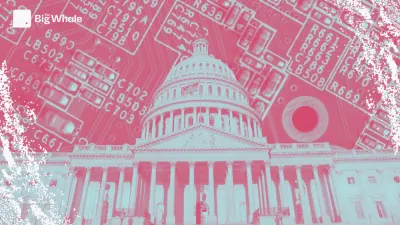Derivatives occupy a central place in the crypto ecosystem. They now account for the majority of traded volumes (around 76% according to Kaiko), but their regulatory status remains in flux. Each jurisdiction is moving at its own pace, between the desire to regulate innovation and the need to protect investors.
Platforms such as Kraken, Coinbase, Gemini and OKX have chosen to obtain licences to legitimise their offerings. Others, like dYdX or the DeFi protocols, are exploring more experimental avenues, often under increased scrutiny from regulators. Between exemplary sanctions, licence applications and legal frameworks still under construction, the regulation of crypto derivatives reveals the tensions between traditional finance and decentralised finance.
This analysis looks back at the state of play, through the strategies of the main players, national and regional arrangements, and emblematic cases of enforcement that outline the contours of the future digital derivatives market.
The major regulated platforms Kraken: a multi-licence strategy Kraken has chosen to expand its global presence through a series of regulatory acquisitions. In February 2025, the exchange obtained a MiFID licence by acquiring a Cypriot company authorised by CySEC. This status enables it to offer crypto derivatives in the 27 countries of the European Union, under a harmonised framework. In the UK, Kraken also has a Multilateral Trading Facility regulated by the FCA, reserved for professional clients.
In the US, the company took a major step forward by acquiring NinjaTrader in early 2025 for $1.5 billion. This brokerage player had a Futures Commission Merchant (FCM) licence registered with the CFTC. Thanks to this deal, Kraken can offer regulated crypto derivatives to US customers and integrate its offering with traditional markets. The launch of Kraken Derivatives US builds on this, providing access to CME-listed crypto contracts and expanding the range of tools available to investors.
Coinbase: from Bermuda to the US Coinbase has followed a parallel path, combining international expansion and consolidation in the US market. In September 2023, its international subsidiary was licensed by the Bermuda Monetary Authority (BMA) to offer perpetual contracts to non-US clients, extending an initial licence obtained a few months earlier for institutional clients.
In July 2024, Coinbase launched CFTC-regulated futures contracts in the US on several digital assets, including Avalanche, Polkadot and Chainlink. The following year, in July 2025, Coinbase Financial Markets took the next step by launching regulated perpetual contracts on bitcoin and ether. These products offer up to 10x leverage, with no monthly expiry and maturities of up to five years. Transaction fees start at 0.02% per contract.
At the same time, Coinbase has strengthened its global positioning with the acquisition of Deribit, the market leader in crypto options. This acquisition significantly expands its range of derivatives and enables it to capture a strategic segment previously dominated by offshore players.
Coinbase also acquired a Cypriot investment company with a MiFID II licence in early 2025. This should enable it to launch an offering aimed at European investors.
>> By offering Deribit, Coinbase signs the biggest acquisition in crypto history
Bitstamp : A derivatives offering in the pipeline under MiFID II At the end of October 2024, Bitstamp obtained its MiFID II licence, paving the way for the launch of a range of regulated derivatives in Europe. Unlike other players who preferred to buy out companies that were already licensed, the platform chose to file its application from Slovenia, its country of origin. The process took around eighteen months, which is considered to be fast in this sector. Bitstamp explains that it preferred this in-house approach to keep control of costs, timescales and the file, rather than managing due diligence and changes of control linked to an acquisition.
The derivatives offering, currently being finalised, will be integrated into the existing platform but will also be available on a white label basis to partners already using Bitstamp's spot solution. This module will thus enable derivatives products to be added to an infrastructure already in place, reinforcing the value of the B2B offering.
These products will be accessible to qualified retail investors, in accordance with the MiFID framework. Experienced retail investors will therefore be able to access them, while unsophisticated retail clients will be excluded. Bitstamp claims that this is a responsible approach, with the aim of targeting an audience capable of assessing the risks associated with these instruments.
>> Jean-Baptiste Graftieaux (Bitstamp): "With Robinhood, we cover the whole spectrum"
Gemini : A MiFID II licence to accelerate in Europe In May 2025, Gemini obtained an Investment Firm licence issued by the Malta Financial Services Authority (MFSA), under MiFID II. This status allows Gemini to offer regulated derivatives, including perpetual contracts, throughout the European Union and the European Economic Area. The company is currently preparing the launch of these products, which will target both advanced retail investors and institutional investors. This step complements the MiCA licence already obtained by Gemini for its crypto services in Europe. At the same time, the platform has launched staking services (Ethereum, Solana) accessible with no minimum amount, as well as an offering called Gemini Perpetuals .
One Trading: pioneer of regulated perpetual contracts in Europe Based in the Netherlands, One Trading was granted an Organised Trading Facility (OTF) licence by the Dutch Financial Markets Authority (AFM) on 29 July 2024. This status makes the platform a regulated trading venue under MiFID II, with the distinctive feature of offering perpetual contracts accessible to the general public. One Trading claims to be the first to offer this type of product in Europe and the UK, within a legal framework. Its offering includes cash-settled perpetual contracts, available 24/7, with a patented custody and settlement system based on DLT technology. Users can also deposit crypto-assets as collateral.
OKX recently regulated in Europe OKX Europe has acquired a Malta-based company with a MiFID II licence. Once approved by the Maltese Financial Services Authority (MFSA), this acquisition will enable OKX Europe to operate legally within the framework of this directive. The MiFID II licence authorises OKX Europe to offer regulated financial services, potentially including derivatives, to its institutional clients in EEA member states. This is part of a wider strategy: OKX had already obtained a licence under the Maltese MiCA regime in January 2025, which provides it with a legal foothold to offer localised crypto products within the EU.
>> Erald Ghoos (OKX): "Our MiFID licence changes the game for crypto derivatives in Europe"
Bybit : An application for a MiFID II licence in Europe Bybit has submitted a formal application for a MiFID II licence as part of its European expansion. Once validated, this authorisation will enable it to offer regulated derivatives, including futures and options, throughout the European Economic Area. This move complements the MiCA licence that the platform already holds for its spot trading activities. It reflects a desire to expand its offering within a regulated framework and establish a long-term presence on European financial markets.
Cryptocom: extension of regulated offering On 21 May 2025, Crypto.com strengthened its European presence by obtaining a MiFID licence through the acquisition of A.N. Allnew Investments Ltd, a Cypriot company authorised by CySEC. This authorisation enables it to offer a wider range of regulated financial instruments, from traditional securities to derivatives and CFDs, throughout the EEA. It is in addition to the MiCA licence that the exchange already obtained in January 2025. The deal is part of an expansion strategy blending traditional finance and digital assets, with the aim of offering regulated services to an ever wider eligible audience.
Laser Digital (Nomura): regulated options in Dubai On 6 August 2025, Laser Digital, the crypto subsidiary of Nomura Bank, became the first regulated entity to obtain a limited licence from VARA, under the Pilot Framework set up in Dubai. This authorisation allows it to offer options-type derivatives designed for hedging or volatility management strategies directly to institutional investors. The offer remains strictly reserved for qualified professional counterparties, excluding retail clients. The initiative reflects VARA's ambition to position Dubai as a reference centre for regulated digital finance.
Bitfinex Securities: pioneer in El Salvador On 31 January 2024, Bitfinex Securities officially launched its operations in El Salvador, becoming the first registered and licensed digital asset services provider in the country. The launch is part of the regulatory framework introduced by the Salvadoran authorities to support their bitcoin-focused strategy. The entity is now welcoming customers and preparing a range of tokenised financial products that will be rolled out shortly. This initiative illustrates El Salvador's desire to develop a regulated market for digital assets in Latin America.
dYdX: a white paper to frame the DYDX token with MiCA The dYdX Foundation has voluntarily published a white paper of more than 30 pages devoted to the compliance of the DYDX token with European MiCA regulations. The paper details the functions of the token on the dYdX Chain, developed with CosmosSDK and specialising in perpetual contracts. It addresses aspects relating to staking, governance and network security, while including sections on risk, transparency and sustainability. This is intended to clarify the regulatory reading of the token, meet the expectations of both institutional investors and the community, and demonstrate dYdX's commitment to a regulated environment.
>> Hyperliquid, dYdX, Jupiter, Vertex : the comparison of the best DEX Perp
Global overview of crypto derivatives regulatory frameworks Europe In Europe, platforms operate within a dual framework: MiFID II and MiCA.
MiFID II, in force since 2018, applies as soon as crypto-assets are considered to be financial instruments, like futures or options. It imposes transparency, best execution rules, investor protection and transaction reporting. Players such as Kraken, Gemini or Crypto.com have relied on this directive to offer derivatives regulated at European level.
MiCA, applicable since December 2024, covers crypto-assets that do not fall within the scope of MiFID II, such as utility tokens or the majority of stablecoins. It creates a harmonised regime for service providers (CASPs), with compulsory licences for custody, trading and advice. Together, MiFID II and MiCA define a comprehensive framework between traditional finance and digital assets.
United States In the United States, crypto derivatives are regulated primarily by the CFTC, under the Commodity Exchange Act (CEA). Derivatives based on financial securities are the responsibility of the SEC, under the Securities Exchange Act . Anti-money laundering and anti-terrorist financing obligations are set out in the Bank Secrecy Act .
In addition, there are local regulations, such as New York's BitLicense . The federal authorities are seeking to clarify the division of roles between the SEC and the CFTC, in order to secure innovation while protecting investors and market integrity.
United Kingdom In the UK, crypto derivatives are regulated by the Financial Services and Markets Act (FSMA). Players must obtain authorisation from the FCA to operate as a trading platform or financial services provider. Foreign exchange and digital asset custody firms must also be registered as VASPs under the anti-money laundering rules (MLRs).
Platforms offering regulated derivatives can be recognised as a Recognised Investment Exchange (RIE) or have authorisation to operate a Multilateral Trading Facility (MTF) or a Organised Trading Facility (OTF). The law passed in 2023 extended the scope of regulated activities, with specific rules to come from the FCA on transparency and consumer protection.
United Arab Emirates In the Emirates, supervision is shared between the Securities and Commodities Authority (SCA) and Dubai's Virtual Assets Regulatory Authority (VARA). Since 2024, an agreement between the two institutions has created a unified framework for licensing, supervision and mutual recognition of providers.
In Dubai, VARA requires specific licences for trading, custody and derivatives services. Derivatives are considered high-risk products there, requiring enhanced governance, disclosure and risk management obligations.
In an exchange with The Big Whale, Laetitia Lehmann (Laser Digital, Nomura) stresses that VARA's approach is "digital-native", designed from the outset for digital assets. She believes that this flexibility, unlike regimes inherited from traditional finance, allows regulation to be better adapted to local market needs, while combining innovation and investor protection.
Other jurisdictions Japan : the Financial Services Agency (FSA) regulates exchanges and derivatives via the Financial Instruments and Exchange Act (FIEA).Canada : crypto derivatives are regulated at provincial level, under the coordination of the Canadian Securities Administrators (CSA) and the Canadian Investment Regulatory Organization (CIRO). Platforms must comply with securities laws.Switzerland : FINMA supervises crypto derivatives under the Financial Market Infrastructure Act (FMIA).Case studies: sanctions and breaches in crypto derivatives As the ecosystem of digital assets expands, regulators, and in particular the Commodity Futures Trading Commission (CFTC), are stepping up enforcement actions. The aim is clear: to remind people that the rules of the Commodity Exchange Act also apply to crypto players, whether centralised or decentralised. Several recent cases illustrate the firmness of the authorities in the face of registration, compliance and risk management failures.
Uniswap: leveraged tokens deemed illegal On 4 September 2024, the CFTC sanctioned Uniswap Labs for illegally offering retail transactions in leveraged digital assets. The protocol made it possible to trade tokens offering double exposure to ether or bitcoin, without registering with the regulator. Uniswap was fined $175,000 and ordered to cease trading. The team's cooperation reduced the penalty, but the case illustrates the CFTC's desire to strictly enforce the law in the DeFi universe.
Binance: accusations of regulatory evasion On 27 March 2023, the CFTC filed a complaint against Binance, its founder Changpeng Zhao and former compliance officer Samuel Lim. The complaint accuses the platform of knowingly circumventing US legislation by allowing US-based customers to trade crypto derivatives via VPNs and shell companies, without proper registration.
BitMEX: record fine for non-compliance In August 2021, the US justice system ordered BitMEX to pay $100 million for illegally operating a crypto derivatives platform. The exchange had not complied with its registration obligations or implemented KYC/AML procedures. Access for US customers was blocked and the founders are still facing legal proceedings.
Opyn, ZeroEx and Deridex: DeFi in the crosshairs On 7 September 2023, the CFTC sued three DeFi protocols - Opyn, ZeroEx and Deridex - for offering leveraged derivatives to retail customers. Opyn and Deridex had also failed to meet their registration obligations as swap execution facility or future commission merchant . The financial penalties were $250,000, $200,000 and $100,000 respectively.
Falcon Labs: sanction against intermediary On 13 May 2024, Falcon Labs was sanctioned for acting as an unregistered intermediary, providing US clients with access to crypto derivatives platforms. The company has cooperated with the regulator, strengthened its location controls and ceased its non-compliant activities. This is the CFTC's first action against this type of intermediary.
Bitfinex: illegal off-exchange trading Bitfinex has been fined $1.5 million for conducting retail commodities trading outside authorised markets and operating as future commission merchant without registration.
Conclusion Regulating crypto derivatives goes beyond simply drafting legal texts. It raises a broader question: how do societies want to organise tomorrow's finance? Innovation is born of freedom, but markets need rules to ensure fairness and trust. Should we adapt the law to technology, or force technology to align itself with the law? The answer probably lies in an evolving balance, where flexibility coexists with responsibility.
Crypto derivatives embody this tension between risk and opportunity, between broad access and cautious protection. Regulators must protect without stifling; innovators must shake things up without destabilising. The guiding principles seem clear: transparency, integrity and inclusion. It is around these that a sustainable framework can take shape.
On a global scale, jurisdictions are converging towards a common core: compulsory licensing, AML/KYC compliance, market integrity and investor protection. This emerging consistency encourages cross-border growth and strengthens confidence. But it also reveals a dividing line: centralised platforms, with their legal structure and verification procedures, find it easier to fit into this framework. Decentralised protocols, on the other hand, have to contend with regulatory grey areas and increased oversight.
There remains a central question: will regulation be able to remain flexible enough to incorporate decentralisation, while maintaining the stability of the system? If this balance is found, crypto derivatives could not only integrate with traditional finance, but also help redefine it, by building a more coherent, resilient and transparent global ecosystem.>> HyperEVM: a network under construction backed by an on-chain trading giant






